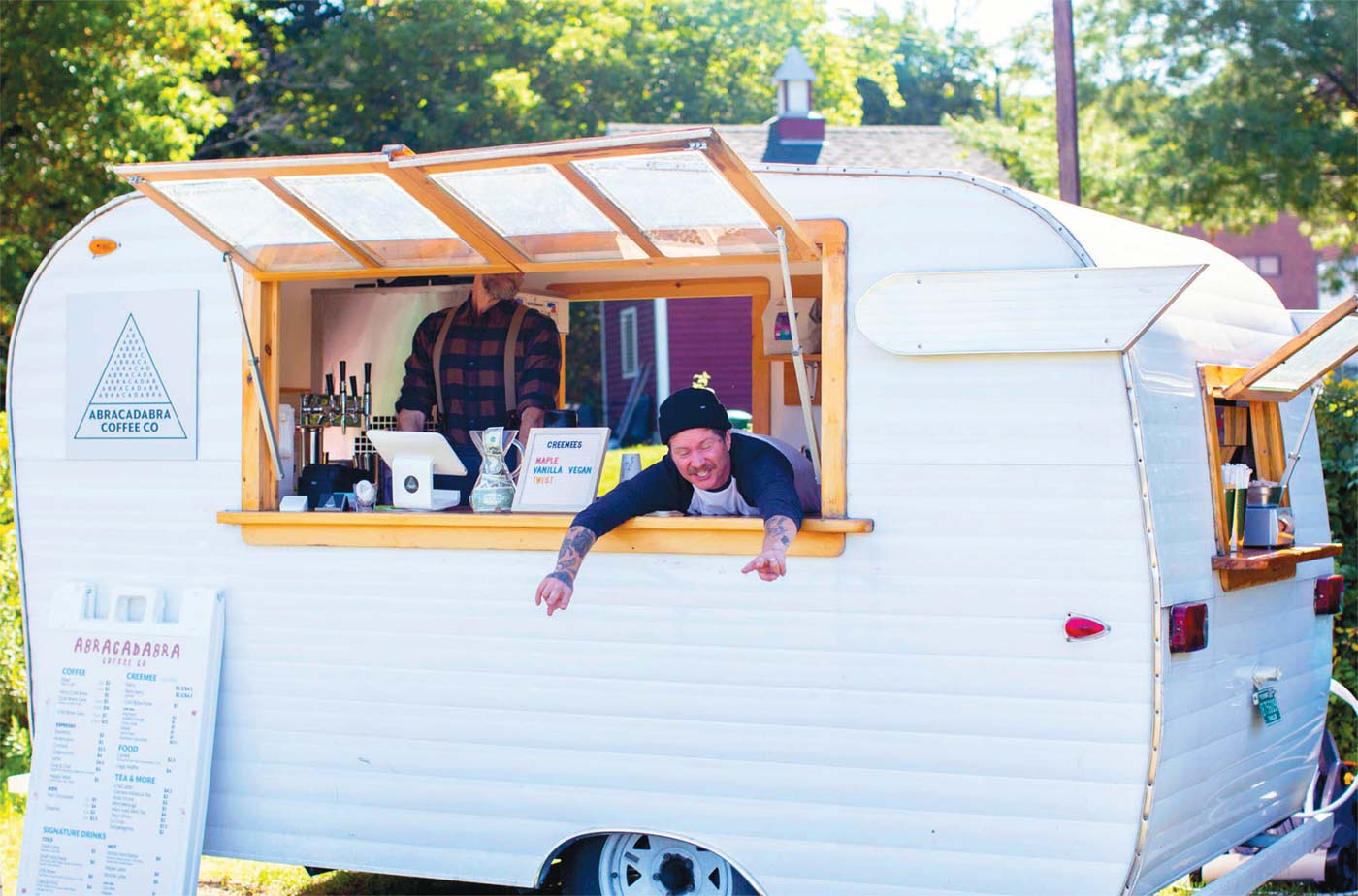ABRACADABRA COFFEE CO: THE REBEL
“We have amazing coffee, and we can talk about it on every level and, hopefully, make everyone comfortable.” –Clint Hunt
At the edge of Woodstock’s stately downtown, I pulled into East End Park to a DJ spinning psychedelic music, La Pizza Lupo’s Ford truck outfitted with a wood-fired pizza oven and a slick, white 1964 Shasta camper housing a sophisticated coffee operation. My immediate reaction was, whoa, cool! There were picnic tables and strings of lights overhead, couples with dogs, families with kids, hipsters, and out-of-state tourists converging on a green in the middle of Vermont for a Sunday afternoon party thrown by Abracadabra Coffee Co.
I connected with Clint Hunt, one of Abracadabra’s founders, about a week later over the phone. We talked about the occult and mysticism (the triangle in the brand’s logo is, according to Clint, a strong symbol that is worn as an amulet to ward off evil spirits), his background in Ohio and experience with his wife organic farming and goat herding, and, of course, coffee. Clint is fast-talking, driven, and, at times, self-effacing. He talked at length about Abracadabra’s roasting process and offered an ingenious analogy for the difference between dark- and light-roast coffees: toast! Take slices of pumpernickel, rye, and sourdough bread and lightly toast them. Now, taste them. It’s likely you’re going to know that you’re eating three types of bread. Put the bread back in the toaster, and let it get really dark. Taste the slices again, and you will probably notice that some of the distinction is gone.
Clint is a light-roast enthusiast. He takes immense pride in the extreme care with which he handles the coffee beans, and he employs roasting methods that are meant to showcase the nuance and individuality of each batch of beans. Clint explained how he and his production team’s palates are calibrated to identify similar notes in coffee. “When we talk about the coffees, it’s mostly focused on what you taste or experience. What is the mouthfeel? What’s the acidity?” Sometimes, he says, as he and his team talk through a tasting, a flavor recalls a memory.
Clint found his way to coffee by way of being a kid yearning for a community. “I grew up in a town that had nothing and without people my age,” he said. “I wanted nothing more than to sit by a window looking onto a busy street and sip a cup of coffee.” He found this at Java House in Zanesville, Ohio, about an hour from Columbus. “It was my first experience with a community within the counterculture. It was exciting to find a place where likeminded people could gather and discuss important issues and ideas. People could share music, art, books, and films they were into. It was a comfortable, cool place that my friends and I felt like we discovered.”
Intentionally or not, he called on this experience when creating Abracadabra. “We wanted to offer wild, fun, and exciting new coffees that are extremely traceable and transparent. We also wanted to get the conversation rolling on what coffee is, and it is all branded and packed in this nonchalant, goofy, funny way. It’s not so over-the-top serious.”
The pop-up parties emerged as a Covid-era pivot. “We wanted to create an experience where people could meet on the same level and have really curated music, and everyone is nice,” he continued. “We have amazing coffee, and we can talk about it on every level and, hopefully, make everyone comfortable. We do our own wild, weird thing and invite everyone to come. It’s exactly what I always wanted, to find a place that’s comfortable to be in.”





